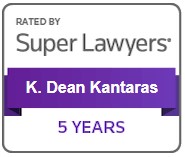
Expert Legal Guidance You Can Trust
Tampa Extension of Stay / Change of Status Lawyer
Legal Assistance For Non-Immigrants in Florida
When living in the U.S. on a temporary non-immigrant visa, you may find that you need to either extend your stay or change your status to another non-immigrant category.
Whether you're a student on an F-1 visa, a visitor on a B-2 tourist visa, or in the country on another type of temporary visa, it is crucial to stay in compliance with U.S. immigration laws. If you need to extend your stay or change your non-immigrant status, it is essential to navigate the process correctly and efficiently to avoid any legal complications.
Our extension-of-stay attorney in Tampa can guide you through the complex procedures of filing the appropriate forms, providing necessary documentation, and understanding the nuances of the law. K. Dean Kantaras, P.A. offers comprehensive legal services to help individuals extend their stay or change their non-immigrant status in the U.S.
Speak with a trusted Tampa immigration attorney to discuss your family law needs. Call us now at (727) 939-6113 or contact us online to schedule your free consultation.
What is an Extension of Stay?
An extension of stay refers to the process of requesting more time to remain in the United States while holding the same visa status. Non-immigrant visas come with specific time limits, and if you are in the U.S. on a temporary visa, your authorized stay will eventually come to an end. If you need additional time to complete your visit, work, study, or other temporary purposes, you may apply for an extension of stay.
The extension request must be filed before your current authorized stay expires. If you fail to do so, you could face penalties, including the denial of your extension or even deportation. It is vital to work with a skilled Tampa extension of stay attorney who can ensure your application is submitted on time and meets all legal requirements.
What is a Change of Non-Immigrant Status?
A change of status involves changing from one non-immigrant visa category to another while remaining in the U.S. For example, if you're in the U.S. on a tourist visa (B-2) but wish to change your status to a student visa (F-1) to continue your education, you would need to apply for a change of status. Unlike an extension of stay, which keeps you on the same visa type, a change of status changes your legal classification while in the U.S.
The U.S. Citizenship and Immigration Services (USCIS) carefully reviews change of status requests, and the application must be submitted before the expiration of your current visa. Your new status must be approved before you can legally engage in activities related to your new visa category, such as studying, working, or engaging in other activities tied to that status.
The Application Process for Extension of Stay or Change of Status
Whether you're applying for an extension of stay or a change of status, the process involves several key steps. Both procedures require the completion of specific forms, submission of supporting documentation, and a careful review by USCIS. Working with a Tampa extension-of-stay attorney ensures that your application is complete, accurate, and submitted in a timely manner.
One of the most crucial aspects of both extensions and changes of status is filing on time. You should file your extension or change of status request before your current authorized stay expires. Generally, USCIS recommends filing at least 45 days before your visa expires, but no more than 6 months in advance of your current status expiring.
If you are applying for a change of status, you must also ensure that you have not violated the terms of your current visa. For example, if you're in the U.S. on a B-2 tourist visa, you cannot begin working or attending school until your change of status to another visa category is approved.
Once your application is submitted, USCIS will review your Form I-539 and supporting documents. The USCIS may request additional information or clarification if something is missing or unclear. During the review, they will assess whether you are eligible for the extension or change of status, based on factors such as your financial situation, the purpose of your stay, and your compliance with U.S. immigration laws.
If approved, USCIS will issue an approval notice, extending your stay or changing your status as requested. If denied, you may be required to leave the U.S. by the end of your authorized stay, and you may be prohibited from returning for a specific period.
Common Reasons for Denial
There are several reasons why an application for an extension of stay or change of status might be denied. Common reasons include:
- Failure to maintain lawful status: If you have overstayed your visa or violated the terms of your current status, your application may be denied.
- Incomplete or incorrect application: Missing information, improperly completed forms, or insufficient documentation can result in delays or denials.
- Failure to demonstrate eligibility: If you cannot prove that you meet the requirements for the extension or change of status, your request may be denied.
- Intent to remain permanently: If USCIS believes that you intend to immigrate permanently, they may deny a request for a temporary extension or change of status.
Working with a Tampa change of status attorney can help you avoid these common pitfalls and ensure your application is as strong as possible.
Why You Need a Tampa Immigration Attorney
If you need help extending your stay or changing your non-immigrant status in Florida, K. Dean Kantaras, P.A. is here to assist you. Our experienced team is committed to providing personalized legal services tailored to your unique immigration needs. Get the legal support you need to navigate the complexities of the U.S. immigration system.
Contact a skilled Tampa extension of stay attorney for a free consultation. Call us at (727) 939-6113 or fill out our online form to get started today!













